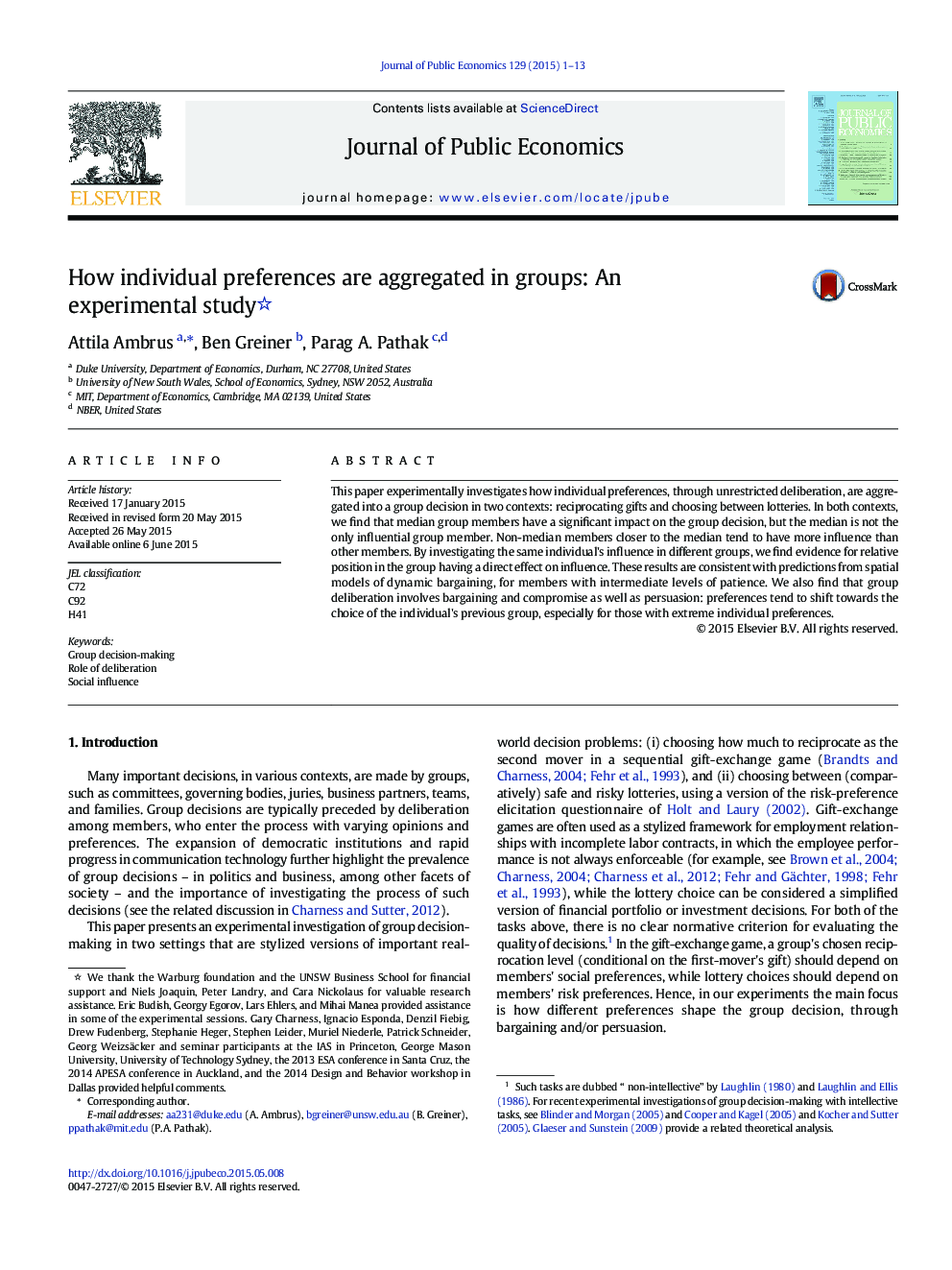| Article ID | Journal | Published Year | Pages | File Type |
|---|---|---|---|---|
| 7369951 | Journal of Public Economics | 2015 | 13 Pages |
Abstract
This paper experimentally investigates how individual preferences, through unrestricted deliberation, are aggregated into a group decision in two contexts: reciprocating gifts and choosing between lotteries. In both contexts, we find that median group members have a significant impact on the group decision, but the median is not the only influential group member. Non-median members closer to the median tend to have more influence than other members. By investigating the same individual's influence in different groups, we find evidence for relative position in the group having a direct effect on influence. These results are consistent with predictions from spatial models of dynamic bargaining, for members with intermediate levels of patience. We also find that group deliberation involves bargaining and compromise as well as persuasion: preferences tend to shift towards the choice of the individual's previous group, especially for those with extreme individual preferences.
Related Topics
Social Sciences and Humanities
Economics, Econometrics and Finance
Economics and Econometrics
Authors
Attila Ambrus, Ben Greiner, Parag A. Pathak,
